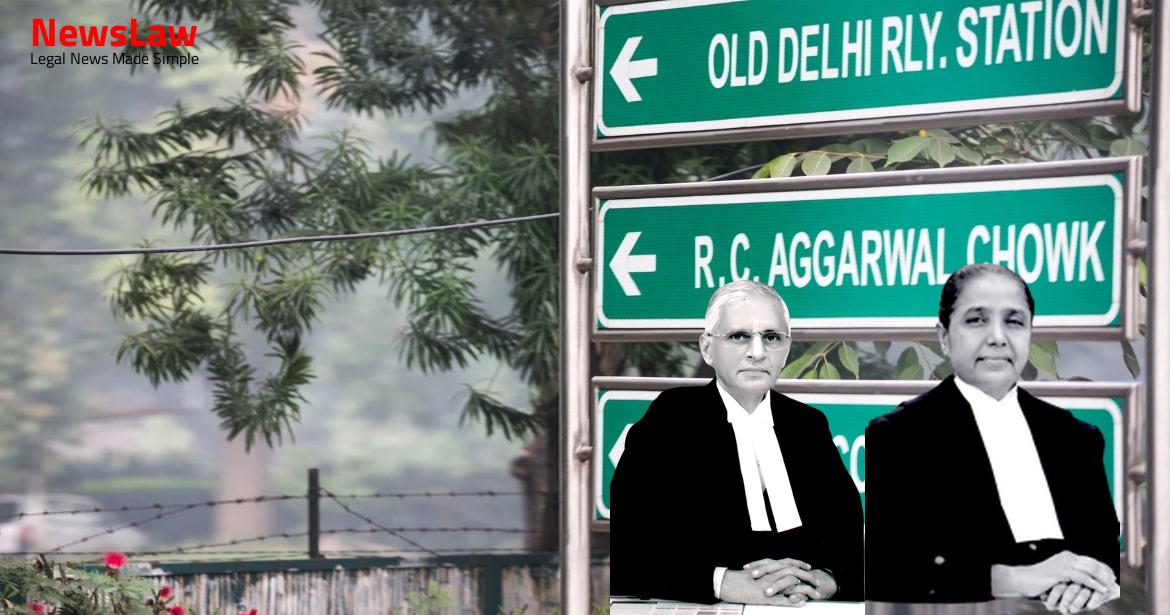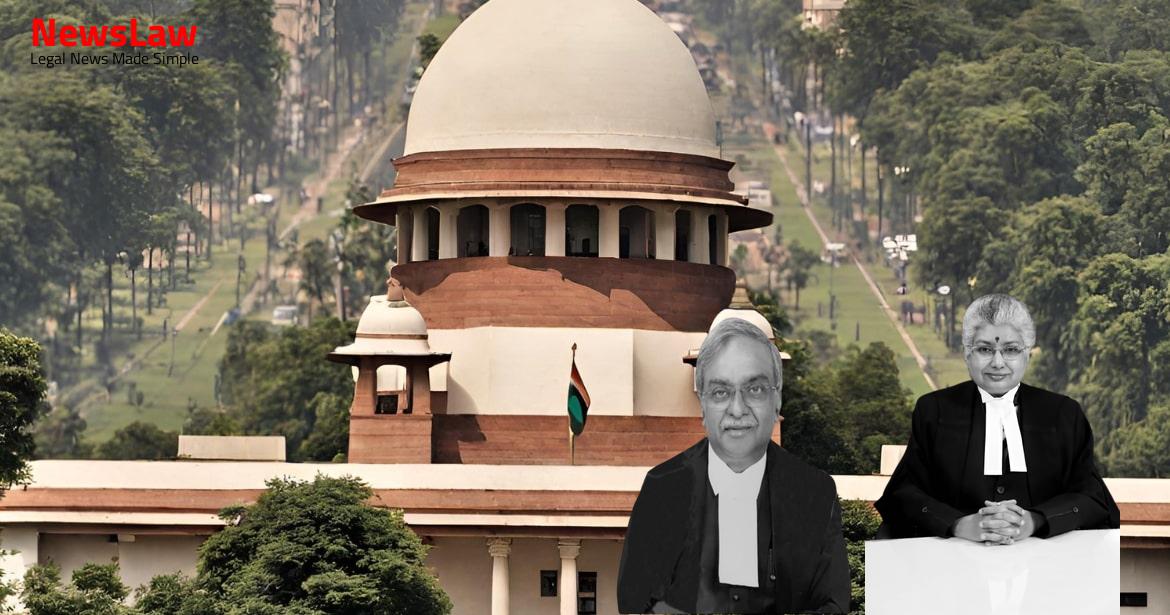If there is a transfer of the right to use the goods, it will amount to a sale in terms of Clause 29A(d) of Article 366 of the Constitution of India. Civil Appeal no.3548 of 2017 arises from the impugned judgment dated 25 November 2009 passed by a Division Bench of the Gauhati High Court in a writ appeal. The learned Single Judge dismissed the petitions by holding that the contract was for the transfer of the right to use the goods and, therefore, there is a liability under the VAT Act and the Sales Tax Act. Civil Appeal no.7954 of 2012, Civil Appeal no.8715 of 2012, Civil Appeal no.9291 of 2012, Civil Appeal no.3549 of 2017, Civil Appeal no.3550 of 2017, Civil Appeal no.3551 of 2017, Civil Appeal no.3552 of 2017, Civil Appeal no.3553 of 2017, Civil Appeal no.3555 of 2017, Civil Appeal no.3558 of 2017, Civil Appeal no.3559 of 2017, Civil Appeal no.3564 of 2017, Civil Appeal no.3565 of 2017, Civil Appeal nos.3566-3569 of 2017, Civil Appeal no.3570 of 2017 and Civil Appeal no.3571 of 2017, the learned counsel appearing for the appellants pointed out that the taxes on sale of goods and advertisements were covered by Entry 48 in List-II of the Seventh Schedule to the Government of India Act, 1935. He pointed out that in the present group of appeals, we are concerned with sub-clause (d) of Clause 29A of Article 366 of the Constitution of India, which provides that the tax on the sale and purchase of goods includes a tax on the transfer of the right to use any goods for any purpose (whether or not for a specified period) for cash, deferred payment or other valuable consideration.
He pointed out that by this amendment to the Constitution of India, by way of legal fiction, six cases of transactions were treated as deemed sale of goods. He pointed out that the question will be whether the transactions subject matter of these appeals constitute deemed sales within the meaning of Section 2(43)(iv) of the VAT Act with effect from 1 May 2005. He pointed out that as per the terms of the agreement, the contractor and ONGC are not responsible for providing secured parking to the cranes in the sense that even if the cranes are parked at the site of ONGC, the same are at the risk of the contractor. , he submitted that in the facts of the case before this Court, the ‘Tug’ which was the subject matter of the contract was made available to the port twenty-four hours a day throughout the contract period. He pointed out that the Superintendent of Tax issued notice to the appellants (IOCL) to deduct sales tax while paying hiring charges to the contractors on the footing that by hiring the tank trucks, there is a transfer of the right to use goods and, therefore, the transaction is of sale covered by Clause 29A of Article 366 of the Constitution of India.
He submitted that the test consistently applied by this Court is that there can be a transfer of the right to use goods provided that there is a parting with possession of goods for the limited period of its use. He relied upon a decision of this Court in the case of Imagic Creative (P) Ltd. Therefore, he relied upon the decision of this Court in the case of Gannon Dunkerley & Co. The learned counsel appearing for the appellants in Civil Appeal nos.8714, 8710, 8705, 8693, and 3573-3579 of 2017 submitted that the contract of providing SCB trailers to ONGC was a contract of service and not of transfer of right to use goods in view of the terms of the contract in question. The learned counsel appearing for the State of Assam relied upon a decision of this Court in the case of 20 Century Finance Corporation Ltd. He submitted that as regards all the contracts subject matter of this group of appeals, such as contracts for hiring cranes, water tankers and trailers, the suppliers have transferred exclusive control and dominion over the goods to the hirer during the subsistence of the contracts. Even if there is actually no sale of cranes, tankers or trailers in terms of the Sale of Goods Act, there is a deemed sale as the terms of the contracts read as a whole show that there was an intention on the part of the parties to transfer the right to use the said goods. Inviting our attention to Section 65(105)(zzzzj) of the Finance Act, the learned counsel submitted that the said provisions exclude those transactions in which there is a transfer of possession and effective control. In the case of Gannon Dunkerley & Co, which is a landmark judgment, this Court dealt with the interpretation of Entry 48 of List–II of the Seventh Schedule to the Government of India Act, 1935 and Entry 54 of List-II of the Seventh Schedule to the Constitution of India which provided for “taxes on sale of goods”.
Also Read: https://newslaw.in/case-type/civil/taxability-of-transfer-of-right-to-use-goods/
Thus, the State legislature was empowered to levy tax on the sale of goods provided there was a sale within the meaning of the Sale of Goods Act. Clause 29A reads thus: “ (29A) “tax on the sale or purchase of goods” includes— (a) a tax on the transfer, otherwise than in pursuance of a contract, of property in any goods for cash, deferred payment or other valuable consideration; (b) a tax on the transfer of property in goods (whether as goods or in some other form) involved in the execution of a works contract; (c) a tax on the delivery of goods on hire- purchase or any system of payment by instalments; (d) a tax on the transfer of the right to use any goods for any purpose (whether or not for a specified period) for cash, deferred payment or other valuable consideration; (e) a tax on the supply of goods by any unincorporated association or body of persons to a member thereof for cash, deferred payment or other valuable consideration; (f) a tax on the supply, by way of or as part of any service or in any other manner whatsoever, of goods, being food or any other article for human consumption or any drink (whether or not intoxicating), where such supply or service, is for cash, deferred payment or other valuable consideration, and such transfer, delivery or supply The definition of “sale” in sub-section (43) of Section 2 of the VAT Act is very exhaustive which is in terms of Clause 29A of Article 366 of the Constitution of India. Agreements for hiring cranes; b. Agreements for hiring water tankers; and g. The impugned judgment and order subject matter of challenge in Civil Appeal no.3548 of 2017 decides a group of 20 cases wherein the agreements were for providing/hiring cranes to ONGC and agreements pertaining to water tankers and trailers.
Civil Appeal no.3580 of 2017 is in the nature of a cross- appeal preferred by the Union of India against the judgment, which is the subject matter of challenge in Civil Appeal 4657 of 2013. The entire controversy revolves around the question of whether the transactions reflected from the agreements subject matter of these appeals amount to a sale within the meaning of sub-clause (d) of Clause 29A of Article 366 of the Constitution of India and, consequently, whether it is a “sale” within the meaning of clause (iv) of sub-section (43) of Section 2 of the VAT Act. However, sub-clause (d) of Clause 29A refers not to the transfer of property in the goods to the buyer but to the transfer of the right to use any goods for any purpose for consideration as mentioned in sub-clause (d) of Clause 29A. The transaction can be either of transfer of right to use the goods or granting mere permission to use the goods without transfer of the right to use the goods. After the equipment was delivered and put to use, the lessee used to execute supplementary lease schedules acknowledging the receipt of the leased equipment. In the facts of the case, the issue considered by the Constitution Bench was “Where is the situs of the taxable event on the transfer of right to use goods under Article 366(29-A)(d) of the Constitution.” In paragraph 27 of the aforesaid decision, the Constitution Bench held that the levy of tax in accordance with Clause 29A(d) is not on the use of goods but on the transfer of the right to use goods. When the goods are in existence, the taxable event for the transfer of the right to use goods occurs when a contract is executed between the lessor and the lessee, and the situs of sale of such a deemed sale would be where the agreement in respect thereof is executed.
It was held that even after Clause 29A was introduced, the ingredients of the sale of goods continue to have the same definition as discussed in the case of Gannon Dunkerley & Co.
In determining the situs of the transfer of the right to use the goods, the Court did not say that delivery of the goods was inessential for the purposes of completing the transfer of the right to use. If the goods, or what is claimed to be goods by the respondents, are not deliverable at all by the service providers to the subscribers, the question of the right to use those goods, would not arise.” (underline supplied)
Thus, this Court held that to attract sub-clause (d) of Clause 29A of Article 366, the goods must be available at the time of transfer, must be deliverable and delivered at some stage. To constitute a transaction for the transfer of the right to use the goods, the transaction must have the following attributes: ( a ) there must be goods available for delivery; ( b ) there must be a consensus ad idem as to the identity of the goods; ( c ) the transferee should have a legal right to use the goods—consequently all legal consequences of such use including any permissions or licences required therefor should be available to the transferee; ( d ) for the period during which the transferee has such legal right, it has to be the exclusion to the transferor—this is the necessary concomitant of the plain language of the statute viz. Adani Gas Limited quoted paragraph 97 of the view expressed by Dr AR Laxmanan, J with approval. The works contracts, hire purchase contracts, supply of food for human consumption, supply of goods by association and clubs, contract for transfer of the right to use any goods are some such economic activities. The transfer of the right to use goods, as distinct from the transfer of goods, is yet another economic activity intended to be exigible to State tax. Article 366(29-A)( d ) of the Constitution implies tax not on the delivery of the goods for use, but implies tax on the transfer of the right to use goods.
The locus of the deemed sale, by transfer of the right to use goods, is the place where the relevant right to use the goods is transferred. In Civil Appeal no.3548 of 2017, in the impugned judgment, the Division Bench of the High Court proceeded on the footing that the terms and conditions of the agreement, by which cranes were supplied to ONGC, were more or less similar. Therefore, by way of illustration, firstly, we are referring to the terms and conditions of the contract dated 13 April 2006, which is the subject matter of challenge in Civil Appeal no.3548 of 2017. Clause 3.3 provides that apart from the cranes, the contract shall provide a necessary number of slings, hooks, dunnage material and other material for loading and unloading. Though in clause 6.2, the registration number of two cranes has been mentioned, what is important here is clause 5.2. Therefore, the contract does not remain confined only to the two cranes described in clause 6.2, but the contractor has an obligation to replace the cranes; iii. The contractor shall make adequate and proper arrangements for fuel, lubricants and other consumables, etc., in relation to the cranes and other items. The contractor will be solely responsible and shall keep ONGC indemnified against any consequence under any law arising from any accident caused to the equipment/property/personnel engaged in the contract. It is provided that after using cranes for a specific period, as mentioned in the contract, the contractor has to park the cranes on the sites provided by ONGC at the risk of the contractor. Though the cranes are used for carrying out the work as suggested by ONGC, the entire control over the cranes is retained by the contractor, inasmuch as it is the contractor who provides crew members for operating the cranes, it is the contractor who has to pay for fuel, oil, etc. In this case, like the other contracts, Clause 2 provides that the supply of equipment will not be by way of lease or transfer or right to use the equipment.
Even in this contract, the entire manpower was to be provided by the Contractor; b. The contractor shall be responsible for the loss of the material provided by ONGC during transportation. Looking at these clauses, it is obvious that the contractor fully controls the trailers during the contract period, and therefore, again, this is a case of a license granted to ONGC to use the trailer, and the right to use the trailer is not transferred to ONGC.
Also Read: https://newslaw.in/supreme-court/quashing-of-fir-based-on-lack-of-legal-basis/
The personnel of IOCL will do the loading of the tank trucks at the depot with the help of the driver and the cleaner, but the unloading will be the responsibility of the contractor; g. If the contractor fails to place its tank trucks at the depots of IOCL, it will be the contractor’s responsibility to engage tank trucks from outside.
Essentially, it is a contract to provide the service of transporting the goods using tank trucks to IOCL. Now, at this stage, we may refer to Section 65(105)(zzzzj) of the Finance Act, which was brought into force with effect from 16 May 2008. Section 65(105)(zzzzj) reads thus: “Section 65.
Case Title: M/S K.P.MOZIKA Vs. OIL AND NATURAL GAS CORPORATION LTD. (2024 INSC 27)
Case Number: C.A. No.-003548-003548 / 2017



